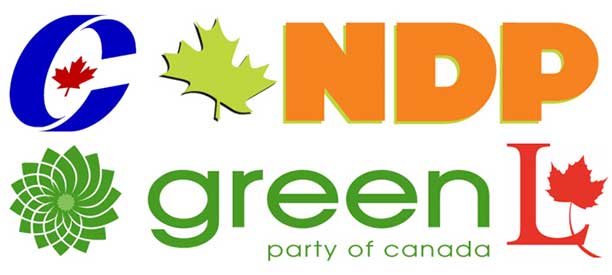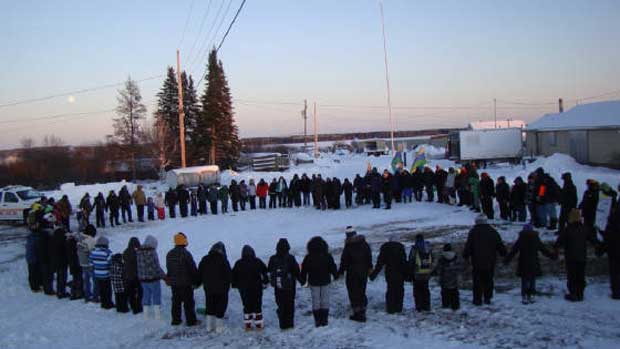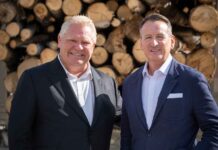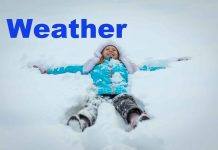 THUNDER BAY – Editorial – Voter math is a science. Political scientists look at voter numbers, election poll analysis, and public opinion. Political strategists look at voter trends, and voter turnout potential. Voters rely on their personal impressions. National polls report trends, but rarely focus down to the local level.
THUNDER BAY – Editorial – Voter math is a science. Political scientists look at voter numbers, election poll analysis, and public opinion. Political strategists look at voter trends, and voter turnout potential. Voters rely on their personal impressions. National polls report trends, but rarely focus down to the local level.
All politics at its base is local. It is something that too many elected officials forget once elected. Their actions in Ottawa make it home today faster than ever. News and information travels at the speed of the Internet. Most politicians don’t get that – many until after they are out of politics and wondering why.
Voter Math vs the Round Dance
Governments get elected, they assume political power, and then seemingly work to erode their margin of victory. They forget all about voter math.
[sws_pullquote_right]Voter math is a science. Political scientists look at voter numbers, election poll analysis, and public opinion [/sws_pullquote_right] Each time a politician frustrates a voter, or angers a voter, they erode their margin of victory by a factor of two. There is the vote they just lost, and the vote that likely just went to their opponent.
An incumbent MP faces challenges that were not seen in their private citizen lives before being elected. One response is message control. That effort is being practiced by the federal Conservatives to a degree that has not been done before. Likely that degree of control is starting to wear down many intelligent MPs. It is also a means to see how politicians will march in lock-step to the party and forget their home base.
The silence of the Conservatives
Long ago, my grandmother taught me that ‘Your actions are speaking so loudly, I can’t hear what you are saying”. The Conservatives in Ottawa were elected on a platform of fixing what was wrong in Ottawa. The western populism of the Reform Party that represented the roots of the Conservatives were deep in grassroots engagement and listening.
The Conservatives rode onto political battlegrounds with the idealism of a new party with enthusiasm. They would fix what was wrong, they would run an open and honest government. The Conservatives set the bar high.
Those days of heady enthusiasm are gone. The openness of the Conservative that they once aspired has been replaced by tight-lipped control of the message.
The freedom of Members of Parliament that the Conservatives once held as bedrock principle, is one of the missing pieces in the current Harper Conservative government.
The Prime Minister who once promised Senate reform now stands in the House of Commons defending the outrageous actions of Senators who he appointed to the Upper House.
The Conservatives who once promised to run the country with balanced books now spend more than the Liberal government they once apparently reviled.
Voter Math and Kenora

In Northwestern Ontario, there are three federal Members of Parliament. One is Conservative. Greg Rickford, since being re-elected to a second term, and a life long pension has become increasingly distant. In Kenora, many people are increasingly finding having Ottawa represented to Kenora not quite what they wanted when they re-elected their MP.
In Thunder Bay, Rickford seems to have taken a unique approach of silence in dealing with local officials. Riding officials and local politicians have commented on the silence coming from Rickford. Perhaps the MP is unhappy he was not tagged by the Prime Minister to be the Aboriginal Affairs Minister?
Lately, the MP seems indifferent to the riding and region, as he enjoys the apparent heady experience of being an Ottawa politician.
Communications is key to political success. Silence is a path to becoming politically irrelevant.
Anishinaabe people across the Kenora riding largely did not vote in the last federal election. For Idle No More supporters in Kenora, moving the Round Dance to the voting booth would likely make a major impact in the next federal election.
Simple election math
The federal Conservatives won the last election by two million votes. Over the past several years, the Conservatives have continued to solidify their defined bedrock base of support. They have, however left the undecided voters with a very polarized choice. They do not seem to be reaching out to new voters. They also do not seem to be interested in attracting new Anishinaabe voters.

They have been angering grassroots Indigenous voters. Idle No More is bringing out more people in some cases than voted in the last federal election.
The Conservatives seem focused on doing what they feel is best for Indigenous people. Father knows best might have worked well in the past, but the times have changed. In angering Aboriginal people, the Conservatives likely see little political downside.
Why? Likely one reason is that it is a group who do not vote for the most part. Angering a group of people who don’t vote has little political cost for politicians.
Unless of course that group of potential voters gets so upset that they become voters. The Conservatives seem to forget that their party was forged in the Reform Party – a grassroots political movement. The frustration with increasingly arrogant Ottawa politicians fueled the rise of Reform.
Kenora Election Math
Elections Canada’s website shows how in Kenora, the margin of victory for the Conservatives would vanish, if the Anishinaabe people had voted in significant numbers.
Looking at the Kenora Riding:
Incumbent Conservative Greg Rickford won with 47% of the vote. The margin of victory over the New Democrats was 4,712 votes. The Conservative candidate’s vote was centralized in Kenora and Dryden. In the North, he didn’t win a single poll in any of the Northern reserves. There were 1,302 votes out of a possible 6,106 votes cast in those Northern communities.
The overall voter turnout in the north was about 25% – compared to a 57% voter turnout nationally. In the northern communities, the highest turnout was in Sandy Lake First Nation. In Sandy Lake out of 567 possible votes, Rickford garnered a mere seven votes.
There were 4,904 voters in the Northern Anishinaabe communities who stayed home on election day. Rickford’s victory was partly fueled by that low voter turnout in the North.
Real Voter Math
Elections are not won by a new party. Voters simply see the old government and its representatives as increasingly out of touch, unresponsive and they toss them out. It is a pattern that has gone on ever since the first democratic elections. It is a boom and bust cycle that government after government seemingly ignores.
The real voter math is that in Kenora, Rickford’s margin of victory only needs a shift of 2.357 votes for the win to become a one vote loss.
Silence in politics is rarely a good thing. It opens the door for others to speak while you are being quiet. For the federal Conservatives, especially in Northwestern Ontario, silence is deadly. The Conservatives, excepting the election of Greg Rickford in Kenora have not elected a representative to the House of Commons.
In Thunder Bay, the federal Conservatives last won a seat in the Port Arthur Riding back in the 1930s. On the Fort William side it was August 1930 when Robert Manion was elected.
In both Thunder Bay ridings, there is a growing Anishinaabe population who are becoming increasingly focused on moving forward. Politicians who impact that community negatively, are setting themselves, and their parties up for long term political pain.
For Greg Rickford in Kenora, a move from the Idle No More Round Dance to education in the riding could easily change his party’s political landscape in Northwestern Ontario.
If the Round Dance moves to the voting booth, it is likely that a potential voting block of almost two million voters would see political opportunity and real engagement follow quickly. It is also quite likely if that happens, several MPs will find themselves out of a job after the next election.
James Murray





